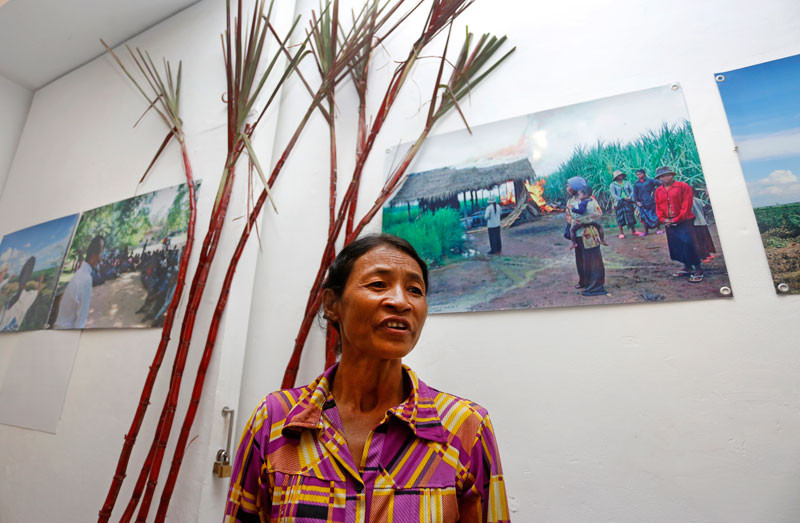Thai sugar giant Mitr Phol has hired a Swiss firm to carry out a damage assessment and agreed to compensate the hundreds of families its now-defunct plantations in Oddar Meanchey province have robbed of their land, the National Human Rights Commission of Thailand announced Wednesday.
But according to Equitable Cambodia, a local NGO helping the families, the Cambodian government has yet to grant the Swiss firm permission to get started.

Visiting commission member Nirun Phitakwatchara made the announcement of Mitr Phol’s about face to coincide with the launch of the commission’s report into the firm’s Cambodian operations, which corroborated long-running reports of human rights abuses.
“We find that there were violations of human rights,” he said at a press conference in Phnom Penh. “First, there was the violation of the rights of the community to make a living off the lands they utilize. The violations involved the dismantling and burning of several hundred houses in five different villages.”
“The second right [that was violated] is the right to development,” Mr. Nirun said. “We are aware that the policies of the government are directed toward big capital, big investments…. There must be a balance between the rights of big businesses and the rights of those people who live in those areas.”
Mitr Phol, one of Coca Cola’s main suppliers, leased three plantations—covering a combined 20,000 hectares—in 2008. Rights groups accuse the firm of forcing some 2,000 families off their farms and out of their homes in the process, often with the help of local authorities who burned down their houses and threw many in jail for trying to resist.
Mitr Phol made the decision to hand its plantations back to the state late last year, having cleared much of the land but planted little sugarcane. According to the government, which officially canceled the leases in March, the firm pulled out because of bad press sparked by the evictions.
Mitr Phol has never publicly acknowledged any wrongdoing and ignored multiple requests for comment over the years.
Wednesday, however, Mr. Nirun said that at his latest meeting with Mitr Phol executives they had admitted that the families had been mistreated and agreed “to take responsibility for the damage caused by their operations.”
He said they had even hired a Swiss firm, International Environment Management Group, for a six-month “damage assessment” of their former plantations to help decide how to compensate the families.
But Equitable Cambodia director Eang Vuthy said Cambodian authorities have prevented the Swiss firm from getting started. He said the governor of Oddar Meanchey denied the firm permission to begin work about two months ago because it had not received a green light from the national government, and that the Agriculture Ministry had yet to reply to a request from the firm.
Spokesmen for the ministry could not be reached for comment.
The aggrieved families have also lodged a request with the ministry to get their old farmland back now that Mitr Phol has left.
Smen Tei, however, who lost his farm to one of Mitr Phol’s plantations, said the ministry has not replied to their request, either.
Huoy Mai, who was also kicked off her land by the firm, said the suffering for her family is unending.
“We have suffered very much. Our lives are getting worse. We have no rice to eat—we share rice with each other—and we send our children to Thailand for work to send money back,” she said, adding that the firm had yet to offer her any compensation



